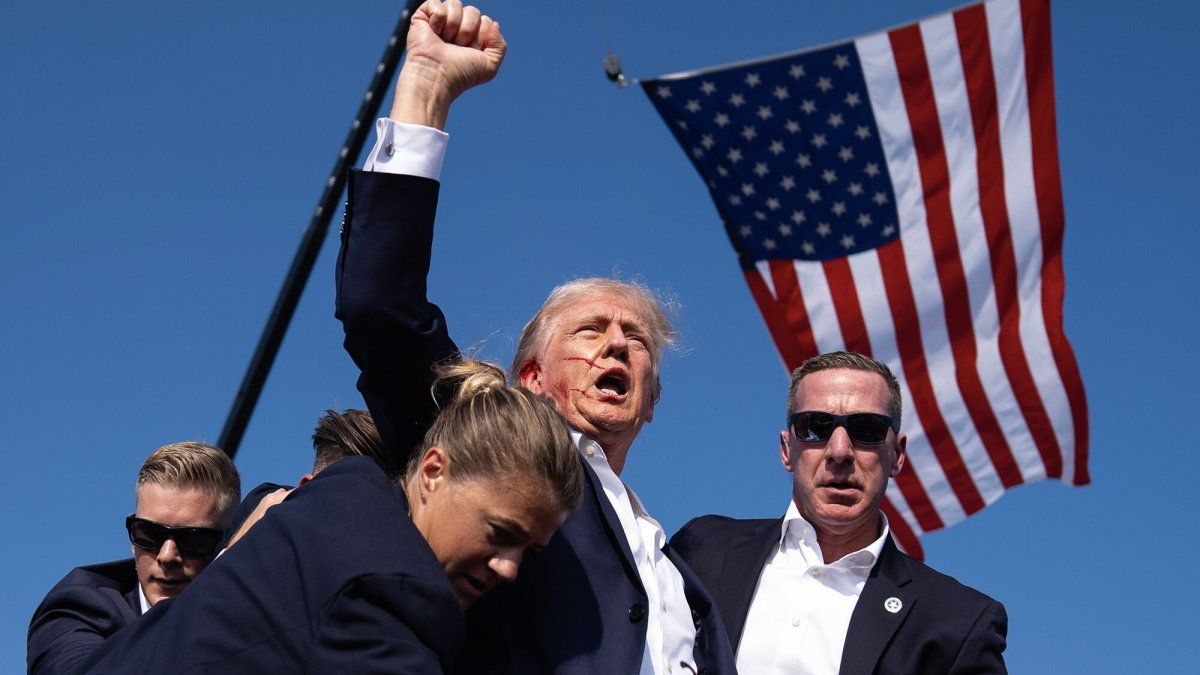FDP leader Lindner proclaims the “autumn of decisions”, Chancellor Scholz wants to fight, the Greens are repositioning themselves. What can citizens expect in the coming months?
After the SPD’s success in the election in Brandenburg, Chancellor Olaf Scholz wants to continue to “fight” and “act”. Finance Minister Christian Lindner has proclaimed an “autumn of decisions” after the repeated failure of his FDP. The Green Party leadership has announced its resignation following the recent election defeats. Foreign Minister Annalena Baerbock (Greens) said: “We in the government also have to ask ourselves how we can improve.” Economics Minister Robert Habeck also says he wants to accept responsibility.
What exactly does the alliance have in mind? What can citizens expect between now and the Christmas break – assuming that the planned decisions of the traffic light coalition do not fall victim to new disputes?
The question is: Will the traffic light coalition last until the regular election? Behind the scenes, discussions are underway to launch several projects for more growth in Germany, together with the long-controversial budget in November.
Scholz sees the government facing major challenges, he said. One of these is the fight for industrial jobs. Lindner said: “These three questions: migration, the economic success of this country and stability-oriented budget policy with bold priorities, these are the questions that must be clarified this autumn.” Where do the SPD, Greens and FDP want to start again specifically – before the election campaign and federal election, probably next year?
migration
In terms of migration policy, the SPD, with its Interior Minister Nancy Faeser, has already made great strides under the pressure of events and driven by the opposition. It has ordered controls at all land borders. Asylum seekers will receive reduced benefits for a longer period of time. Deportations to Afghanistan are no longer taboo.
In order to show that it is staying on the ball, the traffic light coalition wants to push ahead with the national legal changes needed to implement the reform of the Common European Asylum System (CEAS) faster than necessary and to discuss them in the Bundestag this year.
However, with its proposals on asylum and residence law, the FDP is much closer to the Union than to its coalition partners, not only in terms of content but also in tone. Its general secretary, Bijan Djir-Sarai, says: “We need a fundamental reorganization of migration policy in Germany. There must be no taboos for thinking.”
Household
The discussions on the federal government’s budget for 2025 could be the coalition’s breaking point. At least, that is what is being speculated behind closed doors. The big showdown in the budget committee is in mid-November with the reconciliation meeting. By then, the budget holders must manage to save another three to four billion euros so that the math works out. Or the traffic light coalition will decide to take out higher loans and suspend the debt brake because of the war in Ukraine.
However, this is an absolute red line for Finance Minister Lindner’s FDP. The party leader has made it clear several times that compliance with the debt brake and refraining from tax increases are prerequisites for him to participate in the traffic light coalition.
Saving industrial jobs
Bad news from industry has recently brought a new issue to the fore: there is a threat of massive job cuts and large-scale job relocations abroad – for example at Volkswagen, the supplier ZF Friedrichshafen or the steel giant ThyssenKrupp. Chancellor Scholz has therefore made it his mission to save industrial jobs. “And we will take care of it,” he promised.
There are a number of ideas: The SPD proposed a new “scrappage bonus” for replacing combustion engines with electric cars, as well as a reduced industrial electricity price, which failed at the last attempt, partly because of Scholz.
Economics Minister Robert Habeck (Greens) recently dampened expectations: There should be no hasty decisions and no “flash-in-the-pan measures”. In addition, the situation of the federal budget is known – and it is characterized by austerity measures.
Growth package
Tax incentives for electric cars as company cars are part of a planned extensive “growth initiative” with which the federal government wants to stimulate the economy again. Improvements in tax depreciation and an expansion of the research allowance are also planned. The traffic light coalition also wants to reduce bureaucracy. Employees should be given incentives to work more and longer.
However, not all measures have been implemented by the cabinet yet, and changes could still be made in the Bundestag. Plans for tax incentives for skilled workers from abroad are controversial. Some of this could be prevented in the Bundesrat because it would also lead to reduced tax revenues for the states.
Business associations consider the “growth initiative” to be inadequate. Lindner has also made it clear that he believes further measures are necessary to make German companies more competitive.
Pension Package II
Labor Minister Hubertus Heil (SPD) and Lindner had actually already agreed on a reform of the statutory pension. The SPD pushed through a pension level guaranteed for years, which, however, is likely to lead to a significant increase in contributions for those who pay in.
This increase is to be slowed down by investing money in the stock market and earning interest – an idea of the FDP. But the project is stuck in the discussions in the Bundestag. The FDP faction is opposed to it because it does not want the working population to be burdened with higher contributions.
SPD leader Lars Klingbeil made it clear again this week that the SPD insists on a decision. There is a clear agreement in the traffic light coalition, which was renewed again as part of the budget negotiations, he said. “I don’t have to give any ultimatums, I don’t have to threaten or stir up conflict.”
Private pension provision
The unpopular Riester pension is to be replaced, the draft bill from the Ministry of Finance is due to arrive in the next few weeks. It is one of the last prestige projects with which the FDP could really score points. That is why it is all the more important for party leader and Minister Lindner that the coalition partners go along with it and that everything goes smoothly.
Lindner plans to provide state subsidies for private portfolios with stock investments. Citizens could invest in securities of their choice and receive up to 600 euros in subsidies per year. The FDP leader refers to expert calculations according to which one could be a millionaire after 40 years if one saves 250 euros a month and makes full use of the state subsidies.
Law for more collective agreements
Collective bargaining coverage has been crumbling for years. In 1998, 76 percent of employees in the former Federal Republic were covered by a collective agreement. Last year, the figure was 51 percent. In East Germany, 63 percent of employees were covered by industry or company collective agreements in 1998 – in 2023, this figure will be 44 percent.
The idea behind the planned law for more collective bargaining from the office of Labor Minister Heil: Any employer who wants to work on behalf of the federal government must grant their employees collective bargaining conditions. However, discussions within the government about the plan are still ongoing.
Source: Stern
I have been working in the news industry for over 6 years, first as a reporter and now as an editor. I have covered politics extensively, and my work has appeared in major newspapers and online news outlets around the world. In addition to my writing, I also contribute regularly to 24 Hours World.




